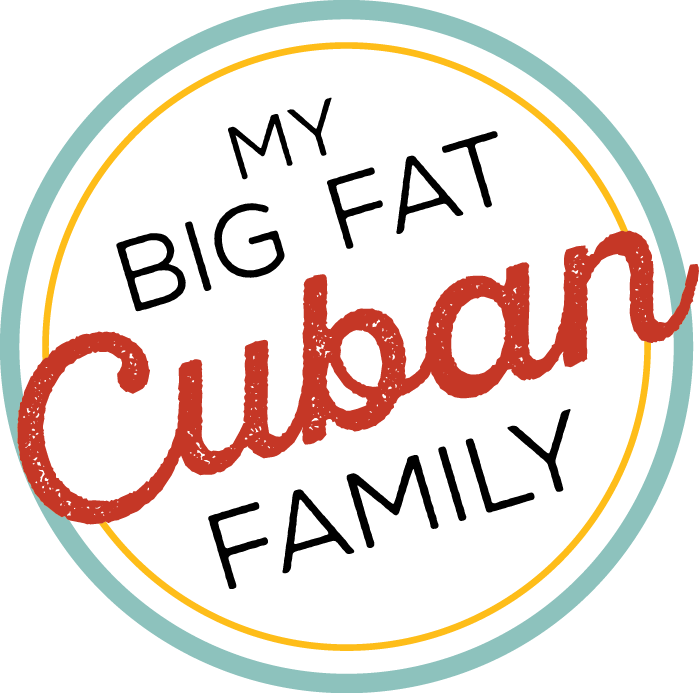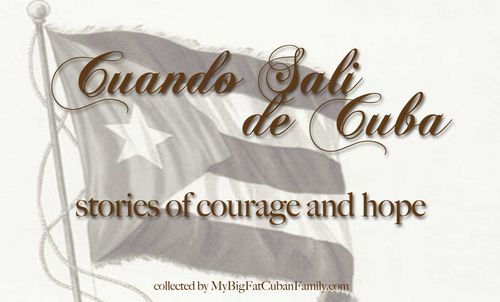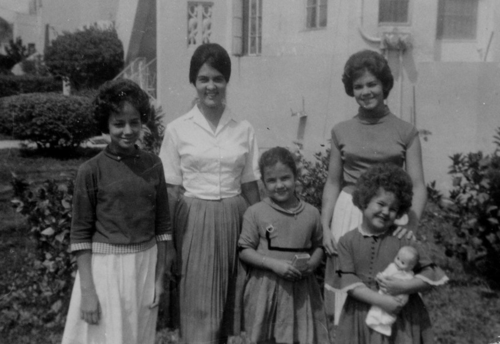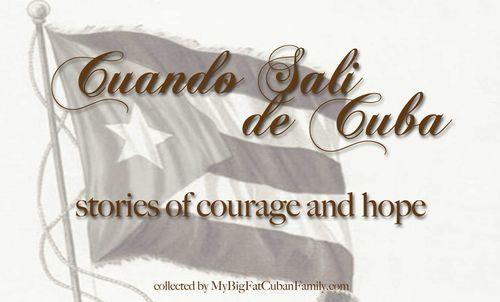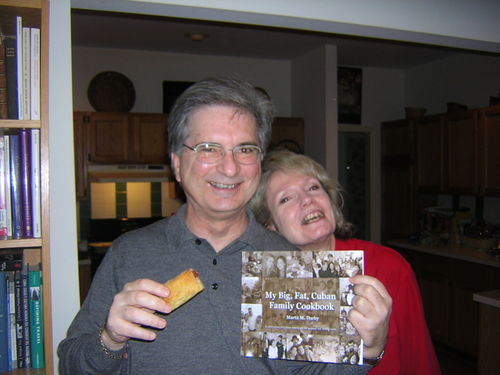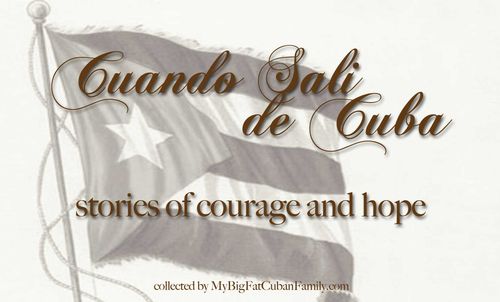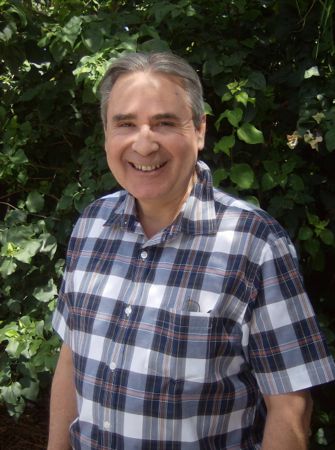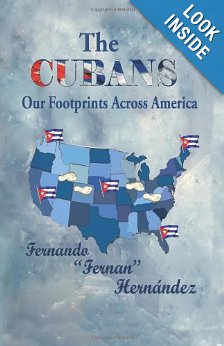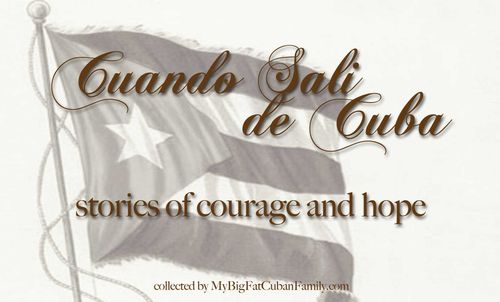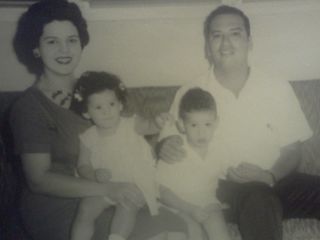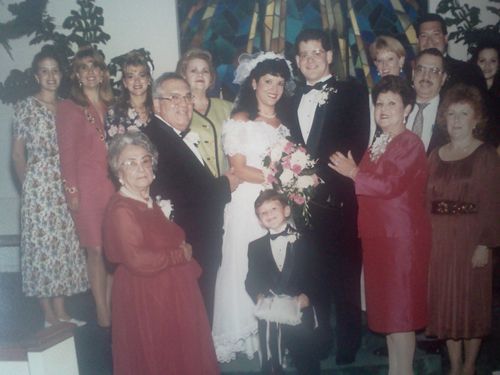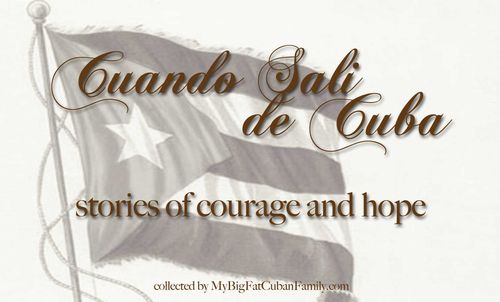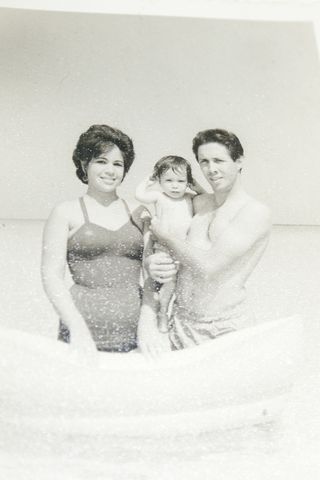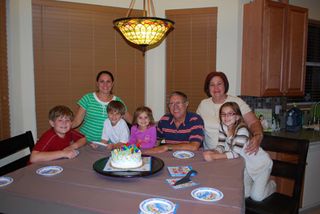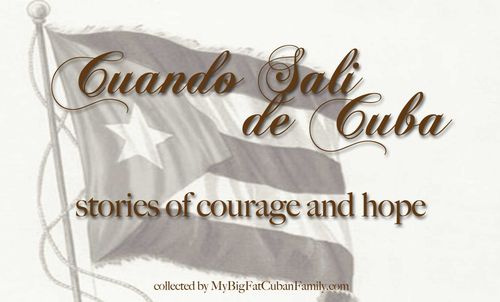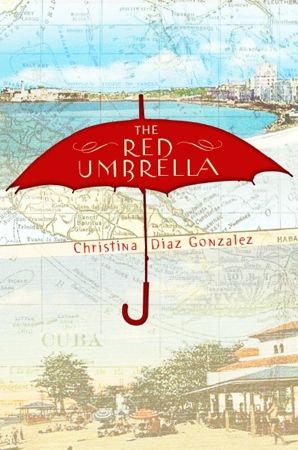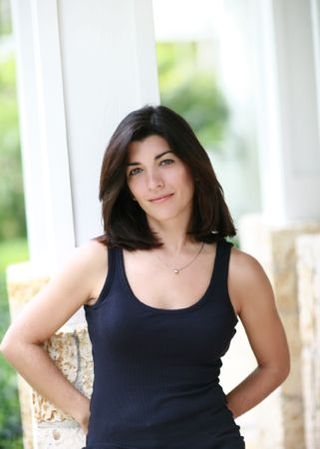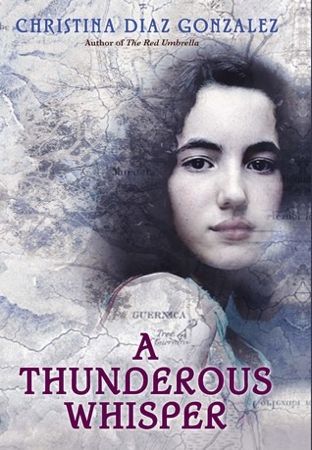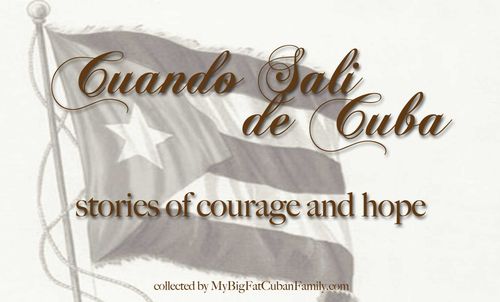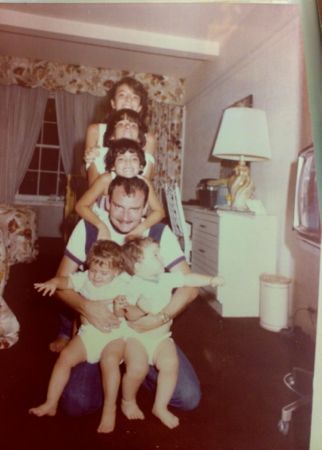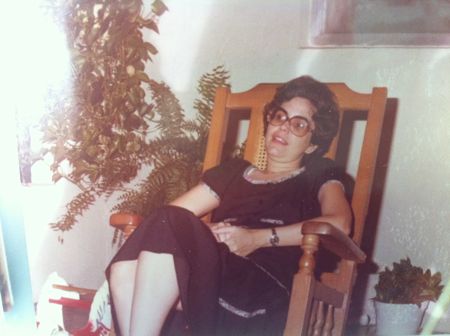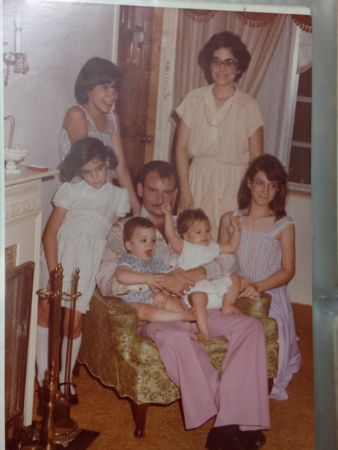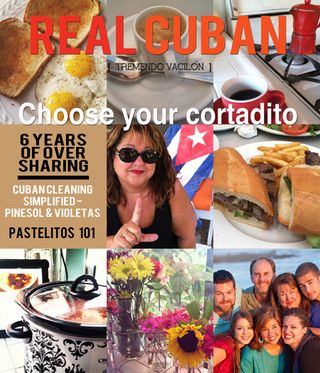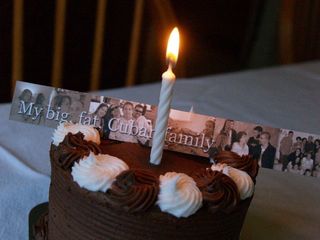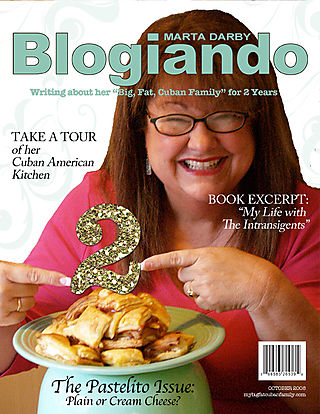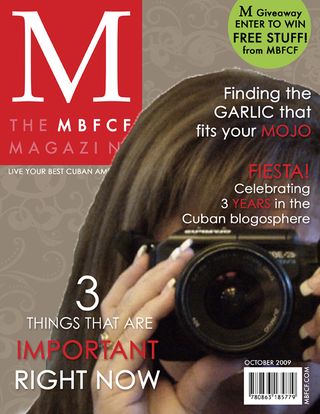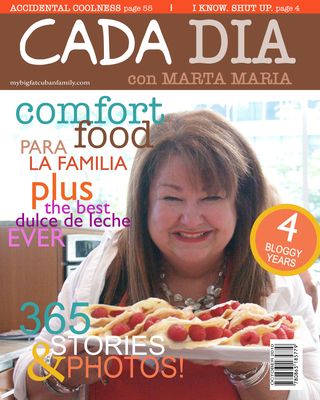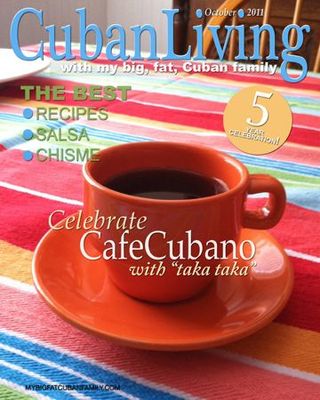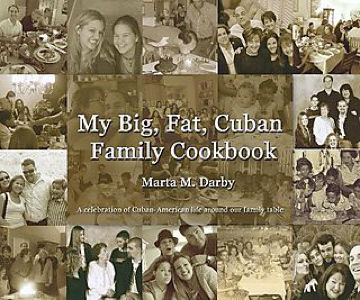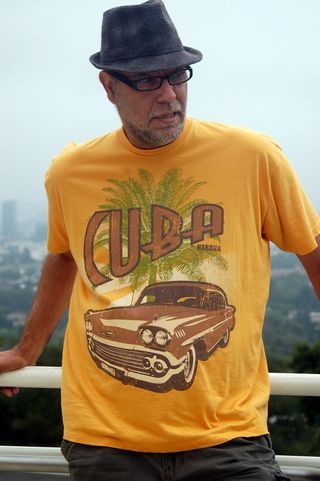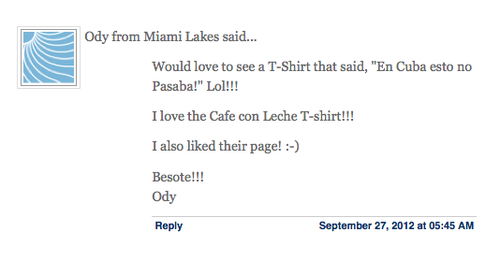Marta here: Silvia shares her story today forthe first time. It was very emotional for her to travel back in time to
those last painful years her family spent waiting for the Freedom Flight
that would bring them to the America.
I'm grateful to
Silvia's daughter, my online friend, Maribel, for convincing her mom to
finally share her beautiful “Cuando Sali de Cuba” story. And to Silvia
for being brave one more time.
Maribel writes about her own adventure-filled life on her blog Stroller Adventures.
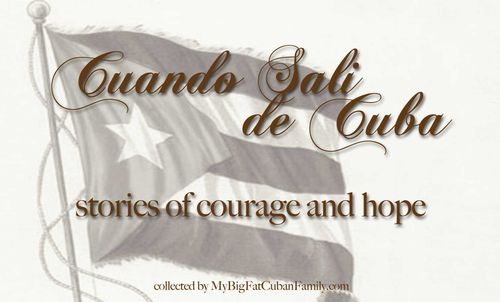
by Silvia Estudillo
We all have a story to tell from our past, some are happy and some are sad…
For us Cubans or at least for me it is very sad. Deeply in my heart
it is something that I don’t like to bring up as emotions take me over.
Cubans we are very passionate and I’m not the exception to the rule. In
fact, in my case, it feels like it is double.
I had started to write my story a long time ago, but never finished
because of the memories brought that came back to me and believe me,
they were not pleasant to confront. Even so, I must say that up to this
date I give thanks to God for how my life was irrevocably changed life.
As I always heard from my family and in my father’s owns words: “Thanks to Castro we are living in a country that believes in freedom and everyone has the same rights.”
He and President Kennedy gave us the opportunity as he came up with the great idea of los “Vuelos de La Libertad” (Freedom Flights). Yes that is how I got my Ticket to Freedom.
I was only 5 years old when Castro took over; I still remember every detail.
Life changed abruptly for us. You could feel it in the air. Stores
were closed. My parents had started a small laundry business out of the
house. My mother took care of it while my father was a retailer at a
“sombrero” store on Reyna and Galiana. Practically overnight the
businesses were closed down by the government, which left my father out
of a job.
Furthermore, one day they came to the place where my parents had
established their own business. It was now a Dry Cleaner, fully
equipped. They had one employee whom I loved very much. Her name was
Inez - oh what sweet memories! Then suddenly we had nothing. I remember
my father would stay in bed all day long in a dark room. My mother had
to look for a job and she could only find a housekeeping job, where she
used to take me every day. Our lives took a turn that no one expected.
When Fidel gave the speech that we all love: “EVERYONE THAT WISHES TO LEAVE THE COUNTRY IS ‘FREE TO DO SO,” my father jumped on the opportunity and that how it all started...
Everyday I dreamed about The Day. But it did not come until November 3, 1970.
My father kept the airline tickets up to his last day with these words: “The Day of Our Freedom.”
In the years we waited to leave we were constantly taunted and called names. The kids on my street would sing to me: “Oye gusanita, no saques los pies, pues si los sacas, te los carta el comité.”
For this reason my mother spanked me every day as she would not want
me to play with these kids because she feared for my life. But I was a
child and I could have cared less. All I wanted to do was play. So, I
would leave the house every day to play, while hiding from my mother.
When I came back home I knew what was coming to me.
In my middle school years, more trouble came to me since I had a big
mouth - which I still do - I would get into trouble every day,
especially with my Spanish teacher who was a big Castro supporter.
Needless to say, she and I did not get along.
Finally one day as I was on my way home from school, someone told me
that The Man With the Motorcycle {if you are a Cuban, you know what I
mean} was in my home. In my own home! I was so very happy and ran as
fast as I could. As I got home, my mother saw me and gave me The Look.
Being afraid that we could lose our chance, our One and Only Chance -
The Big One - TO BE FREE! Imagine life with no more
Castro, no more harassment from the Comité, no more being afraid. Yet,
even at that point, we all knew very well that they could detain us for
any little thing and deny our request.
The inventory went
through and we had to leave our home. The government took everything we
owned. We were only allowed to take some personal belongings. But for
us, who had been waiting so long for that Big Opportunity, we were
ready. We had our “gusanos pack” waiting for when that moment came.
After they had confiscated everything and taken our home, there were
15 long days of waiting. We were all scattered to different houses where
good friends let us stay until The Big Ticket Day. I was 17 and my
sister was 6. Our parents stayed at one house, my sister in her friend’s
house and I was with another family. That made it a little more
bearable to make the transition, knowing that we were moving onto a new
life. It was sad that our friends were not leaving and I could sense how
much they wanted to be in our shoes.
Well the big day finally came. Our little family of four had gathered
at a friend’s house. The dad saved my father’s money for the taxi - it
was about $300 Cuban pesos. It was done this way, because if they found
that money on you, the government would take it like they took
everything else. You had to have a personal banker who arranged for your
trip to Varadero where the Freedom Flights would arrive. Only the crew
members would fly every day from Miami to Varadero. They would then fly
back to Miami with a plane full of Cuban refugees.
We arrived in Varadero, all nervous and quiet, afraid that if we
spoke a word, they would change their minds about letting us go. It was a
rainy day and there was a hotel for us to stay overnight since we had
to wait for the next day. That place was full of families.
There was one particular family that broke everyone’s heart. They had
been there for 15 consecutive days. Can you imagine the experience of
not knowing what to expect the next day? All of us who were gathered
there from different parts of the island, sharing the same dream, from
the same country could not say much to each other. We could only mutter
very few words as we were surrounded by the militia who were
sadistically just waiting for the right moment or the wrong word to take
you in. We all knew very well what it meant: it meant the possibility
of loosing our Ticket to Freedom. Or, ‘Going to Wonderland,’ as I still
call it. No one was willing to take that chance.
We were there for 3 days and every day would be the same for almost
everyone, get ready to be at the airport by 6:00 PM. The first 2 days
for some reason that I don’t remember, we were sent back to the hotel
and I will tell you that when you got to that airport it was not like
getting to an L.A airport or New York or even the smallest airport in
the United States. It was more like a military zone. The militia was all
around. You could not see the inside from the outside because there
were big walls all around.
We were made to wait in line outside for hours and when the time came
to open the big gate to let you in, they would call your family name or
the number you were given at the time you applied for the request. My
father had that number saved with the airline tickets. I still remember
that we were somewhere in the 190,000's. I don’t recall the rest.
I think my father prepared beautifully for all of this. He had saved
the money to survive the days that we had to stay there. We ate very
poorly at a local restaurant for people like us. You did not know how
long you were going to be there, so the money you had, had to last.
And every day before your trip to the airport, if you had any money
left, you would give it to a family like the one that was there for 15
days so that they could survive. Because once the motorcycle police came
to your house and the government took all of your belongings and “la
libreta,” which gave you the right to buy food, you were on your own.
Can you imagine the agony of the families that were there, waiting day
after day, for days without end?
On the third day, we went on to the airport and it was raining again.
It was also cold and we had to wait in line again hoping that our name
would be called. Finally we heard it - they finally called our name.
We were so surprised. We cried as we could not believe that it had
finally happened. We felt very lucky, and our prayers had been answered.
“Virgencita de la Caridad, we love you more than ever!”
We went inside the building and walked through halls until we got to a
big waiting room full of nervous people walking around. No one could be
still, but again, no one spoke a word. It was like we were our worst
enemies, but I guess that is how terror affects you.
The night wore on, and since the flight would not be coming until the
next morning, we went through very tight security. They called each
family to a private room where we were then interrogated by different
officials over and over again. They would ask the same questions trying
to catch us saying the wrong thing so we could possibly lose our Ticket to Freedom.
They would search your belongings, taking things away from you, like
family pictures, jewelry (if you had any with you). You were only
allowed to leave with a certain amount of clothes that they had given
you permission to take, but no more. Lucky for us, my father had sent
our family pictures, Virgen de La Caridad, San Lazaro, whatever precious
things he was able to, to the states ahead of time. He knew what he was
doing. Once we got to this juncture, there would have been no
possibility of saving any of the things that were dear to us.
The night dragged on and it got later and later, with the no change
in the scenery. I was getting so hungry, but there was no dinner (Nada
de nada!) offered to us as we waited through that very long night. As
dawn approached, our expectations grew. I'm sure the same question was
on everyone's mind, although we couldn't voice it: “When is that plane coming for us?”
The morning air was broken by the noise of a airplane. A plane was
landing! I couldn't believe it was actually happening. This would be my
first time on an airplane and I did not know what to expect. I was a
teenage girl that had lived all of my young life in a country with tight
boundaries, sequestered from the outside world. All I had known up to
that point was what was happening in Cuba. Castro, daily misery,
standing in line for hours at a restaurant or store to get what they
allow you. By the time it was your turn and you get to the front of the
line, you find out there is no more food or there are no more shoes. You
would slowly turn to go back home, with your head down and your hopes
completely dashed.
It hurts so much, as I write down those memories. The pain and the
memory of hopelessness will always be with me, for the rest of my life. I
am almost 60 years old and an entire lifetime has gone by. My parents
are gone, but these memories of that difficult time in my life are
stronger than my blood. I wonder if, when I die they will follow me to
heaven? Virgen de La Caridad, please don’t allow that to happen! Let me be free forever of my past.
And I don’t mean my Cuban past, because, as I always say, I am very
proud of being a Cuban. My family and my Mexican husband very well know,
that as a Cuban I am always right and perfect, and as he says “nunca he podido vencer a la Cubanita.”
It was finally time to board our flight. We started to march like
soldiers toward the plane. We were greeted by some nice ladies. I later
learned they were called ‘stewardesses.’ We sat quietly as we were
trying to be as normal as possible. When the plane took off the moment
came when we were finally up in the sky, everyone started to scream, “WE ARE FREE!” Most of us were crying from the mixed emotions we felt.
I remember taking a look around and being amazed at what I was
seeing: big men, crying out loud. My eyes could not believe what they
were seeing. As we continued on our short flight to Miami, one of the
nice ladies came to offer us a small breakfast. Woohoo! Food at last!
Another thing surprised me as we landed in Miami’s airport. This was
all so new to me, and remember, I didn't speak any English. As we went
through the halls from one room to another there would be signs that
said, EXIT, and I thought to myself , “Wow! These Americans are so nice to us. They are even wishing us “EXITO*” in our knew lives. How generous of them.” That was me and my wide-eyed Cuban innocence taking in my very first impressions of the U.S. (*Success.)
Finally the time came for us to go. My uncle that lived in Miami was
waiting for us. He would be taking us back to his home for a miraculous
and emotional reunion. Can you imagine?
As we drove, we looked at the beautiful city around us and thought, “This is Wonderland!”
We arrived at my uncle’s house where they were waiting for us, with
dinner, of course. We felt like mice in a trap! There was a decorative
bowl of fruits on the table; grapes, apples, and oranges. It looked so
very nice. My little sister had never seen fruit before, since she was
born in 1963. After Castro took power, all of that disappeared. My
sister took one of the fruits and started trying to eat it. We all
started to laugh as she struggled with it, looking at everyone with a
question mark on her face. It was finally explained to her that it was
not real. They immediately replaced the plastic one with the real
thing.
As for me, we were taken to a local store where they
bought us ice cream. I had an ice cream sandwich bar. It was the very
first time I had ever had one. I loved it so much that I went to eat one
more, and one more and one more. I got so sick that, to this day, I
have never eaten another one.
After being in Miami for a week,
we finally flew to California. I fell in love with my dear West Coast
from the first moment I arrived. Life was not always easy the first few
years. It took me about two years to learn the language. Of course,
eventually I met new friends and life went on. California has been my
home since then.
Our dream life became my real Wonderland. My dreams, little by little, with lots of effort from everyone came true. Everything we went through has made us all stronger.
I
miss my country. Inside of me there is a Cuban which I love, but at
this point in my life, I feel more international. I’ve been married to
my Mexican husband for 39 years and have been exposed to a mix of
cultures. So if you were to ask me where am I from? My answer is: “I have no boundaries. I am free as can I be. A mix of congri, hamburger and mole and I am proud of it.”
Remember, I am Cuban. Proud. Perfect. And always right.
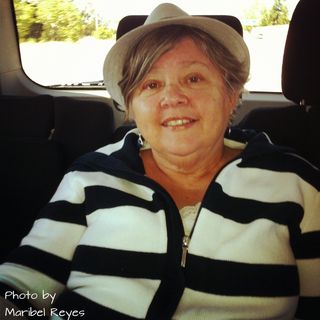
If you know me from my past, I would love you to get in touch with me. My maiden name is Silvia Caballero Garcia.
